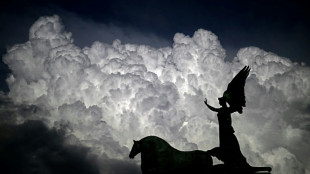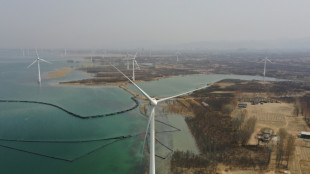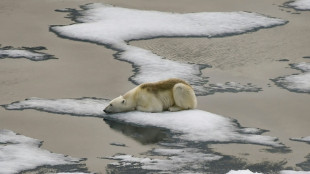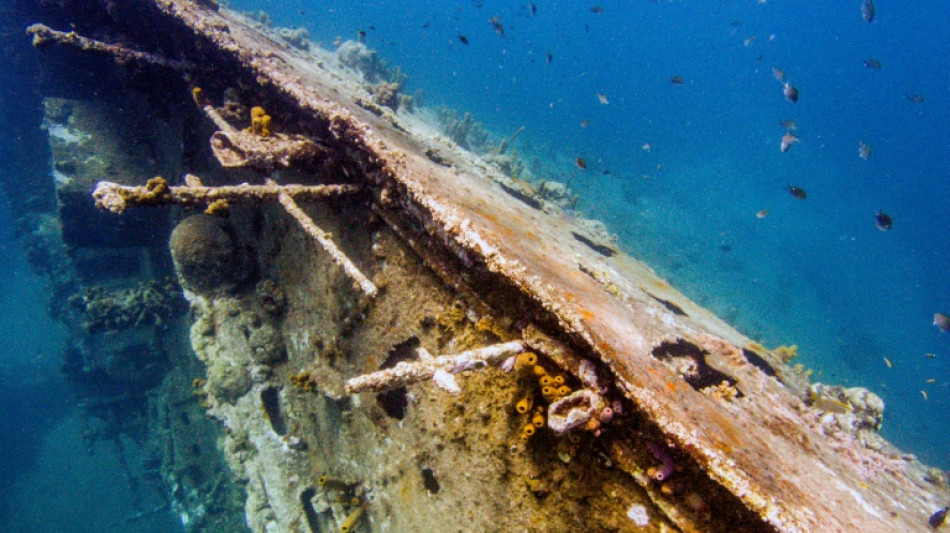
-
 Bourgeois inspires France to Six Nations rout of Scots
Bourgeois inspires France to Six Nations rout of Scots
-
Sudan army says retakes Khartoum-area market from paramilitaries
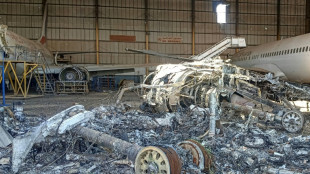
-
 Eze leads Crystal Palace into FA Cup semi-finals
Eze leads Crystal Palace into FA Cup semi-finals
-
Guinea ex-dictator freed from jail after 2009 massacre pardon: junta
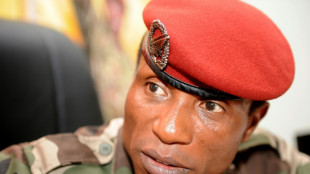
-
 Martinez punishment 'out of Flick's hands' as Barca focus on title
Martinez punishment 'out of Flick's hands' as Barca focus on title
-
Hundreds of thousands join Istanbul protest rally

-
 Australian sprinting prodigy Gout Gout upstaged in 200m
Australian sprinting prodigy Gout Gout upstaged in 200m
-
'We need aid': rescuers in quake-hit Myanmar city plead for help
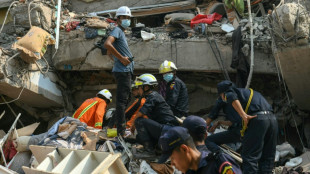
-
 Protesters flock to mass opposition rally in Istanbul
Protesters flock to mass opposition rally in Istanbul
-
Are women allowed their own dreams, wonders Chimamanda Ngozi Adichie

-
 Deadly earthquake forces Thai patients into sports hall
Deadly earthquake forces Thai patients into sports hall
-
'Everyone was screaming': quake shocks Thailand tourists

-
 Rallies grow in South Korea as court weighs president's fate
Rallies grow in South Korea as court weighs president's fate
-
Scientists explain why Myanmar quake was so deadly

-
 Turkey opposition calls mass rally in Istanbul
Turkey opposition calls mass rally in Istanbul
-
Chapman blasts ton as New Zealand win first Pakistan ODI by 73 runs
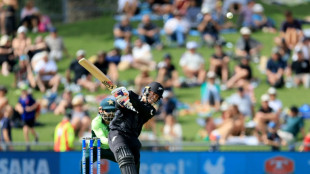
-
 French chefs quake as Michelin prepares new guide
French chefs quake as Michelin prepares new guide
-
Mike Leigh on the 'hard truths' of film, happiness and World War III

-
 Myanmar quake toll passes 1,000 as rescuers dig for survivors
Myanmar quake toll passes 1,000 as rescuers dig for survivors
-
Lights out: Bali guards protect island's day of silence
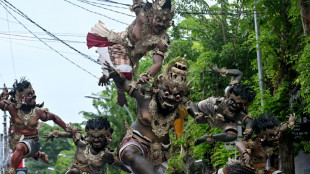
-
 Myanmar-Thailand quake toll passes 700 as rescuers dig for survivors
Myanmar-Thailand quake toll passes 700 as rescuers dig for survivors
-
UK gallery to return Nazi-looted painting to heirs of Jewish collector
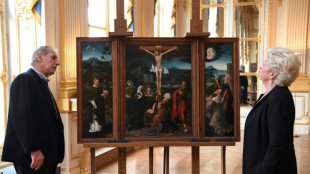
-
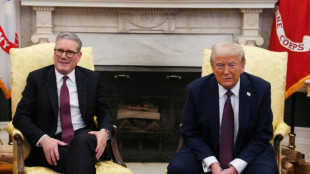 UK dreams of US trade deal before Trump tariffs
UK dreams of US trade deal before Trump tariffs
-
'Blink of an eye': survivor tells of Bangkok skyscraper collapse horror
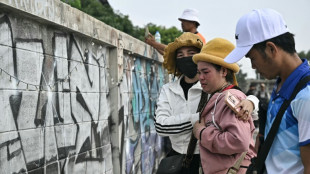
-
 The hand of GOAT, Mensik wins with Messi touch
The hand of GOAT, Mensik wins with Messi touch
-
Partial solar eclipse to cross swathe of Northern Hemisphere

-
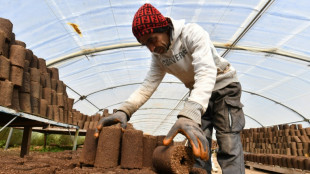 Tunisian startup turns olive waste into clean energy
Tunisian startup turns olive waste into clean energy
-
Guinea ex-dictator sentenced for 2009 massacre pardoned: junta
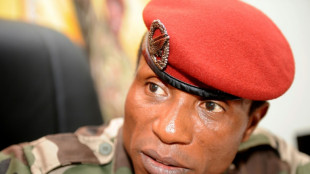
-
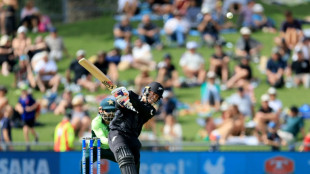 Chapman ton lifts New Zealand to 344-9 in first Pakistan ODI
Chapman ton lifts New Zealand to 344-9 in first Pakistan ODI
-
Myanmar quake: what we know
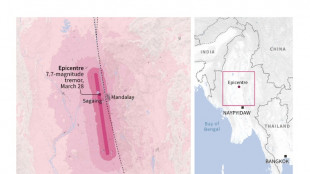
-
 Vu fires 64 to seize lead at LPGA Ford Championship
Vu fires 64 to seize lead at LPGA Ford Championship
-
Resurgent Liu wins women's figure skating world title

-
 Djokovic to face Mensik with 100th title within reach
Djokovic to face Mensik with 100th title within reach
-
Rescuers dig for survivors after huge quake hits Myanmar, Thailand

-
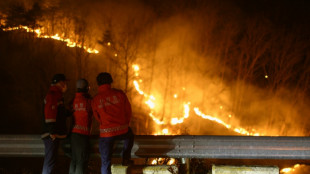 South Korea firefighters deploy helicopters as wildfires reignite
South Korea firefighters deploy helicopters as wildfires reignite
-
'Defiant' Canada autoworkers vow to fight tariff layoffs
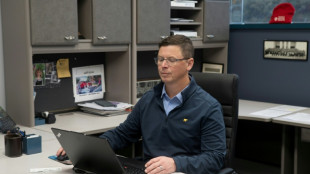
-
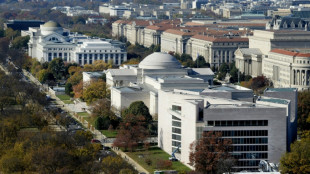 Performance, museums, history: Trump's cultural power grab
Performance, museums, history: Trump's cultural power grab
-
Russian-born 12-ranked Kasatkina says to play for Australia tennis

-
 WyHy Celebrates Grand Opening of New Lyman Branch
WyHy Celebrates Grand Opening of New Lyman Branch
-
New to The Street Show #639 Premieres Nationwide on Bloomberg Television, March 29 at 6:30 PM EST Featuring BioVie, Roadzen, Tonix Pharma, and eXoZymes Inc.

-
 Wallabies back Jorgensen suffers serious ankle injury
Wallabies back Jorgensen suffers serious ankle injury
-
Academy apologizes after stars say it 'failed to defend' Palestinian filmmaker

-
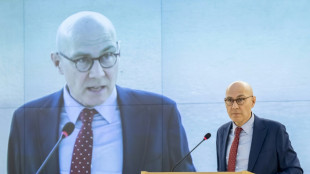 UN rights chief demands end to 'horrific suffering' in Ukraine
UN rights chief demands end to 'horrific suffering' in Ukraine
-
Djokovic oozing confidence ahead of century bid

-
 US regulators to investigate Disney diversity efforts
US regulators to investigate Disney diversity efforts
-
Elon Musk says xAI startup buying X platform

-
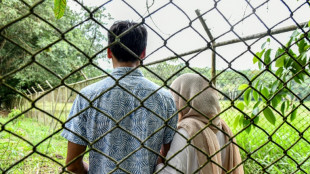 'Jail or death': migrants expelled by Trump fear for their fate
'Jail or death': migrants expelled by Trump fear for their fate
-
Djokovic closing in on 100th title after Dimitrov downed in Miami

-
 Leverkusen beat Bochum to stay hot on Bayern's heels
Leverkusen beat Bochum to stay hot on Bayern's heels
-
Global markets slide as fears over US tariffs intensify


Protecting undersea cultural heritage in spotlight at mining code talks
The world's oceans harbor a cultural heritage of sunken ships, remains of those lost in the transatlantic slave trade and Indigenous islanders' spiritual ties to the sea that must be protected, NGOs and native peoples say.
They are pushing at a meeting in Jamaica of the International Seabed Authority (ISA) -- an organization established under the UN Convention on the Law of the Sea -- for such protection to be enshrined in a mining code that is being negotiated to govern the exploitation of sea beds in international waters.
"Our ancestors traveled the oceans for thousands of years, passing on information from generation to generation," said Hinano Murphy of the Tetiaroa Society, a Polynesian conservation group.
"We are the children of the people of the ocean," Murphy told AFP, insisting this heritage must be treated as something sacred.
Scientists and defenders of the oceans have long insisted that future industrial-level mining will threaten marine ecosystems.
But "the underwater cultural heritage is a living memory of the generations that came before us. Its protection must be a priority equal to the protection of marine biodiversity," Salim Lahsini, a representative of Morocco speaking on behalf of African countries, said during fierce debate over the mining code.
The draft of the code states that mining companies are supposed to notify the ISA if they come across human remains or archeological objects or sites.
Depending on how the talks conclude, such a find could trigger a suspension of the mining that led to the discovery, but there is no consensus on the details of how this will work.
"To define underwater cultural heritage as shipwrecks is very sad for me," said April Nishimura, a representative of a clan of the Gitxsan Indigenous people in Canada, who explained that her people feel linked to the ocean by the salmon that swim upriver.
- 'Intangible heritage' -
In this spirit, a group of countries led by Micronesia has proposed that underwater heritage be defined to include tangible things such as human remains, shipwrecks and their cargo as well as intangibles such as knowledge of traditional navigation techniques and spiritual practices linked to the sea.
As things stand now, technologies for mining metal deposits in the Pacific are the only ones that seem ready for industrial-scale use.
But the Atlantic could lure profit-seekers next, as it features a different kind of valuable deposits under the sea.
The ocean is the final resting place of shipwrecks, planes shot down during World War II and physical reminders of centuries of trade in slaves from Africa to the Americas.
"Many ships carrying enslaved persons sank during the passage. Many enslaved persons who died during the crossing had their bodies dumped into the ocean," said Lucas Lixinski, a professor of law at the University of New South Wales in Australia.
The slave trade, he said, "is an important story of underwater heritage and our ongoing connections to it."
While halting a mining job if a shipwreck is found seems simple in principle, protecting intangible parts of the undersea heritage is more tricky.
The mining code could protect this kind of treasure by establishing a "checkpoint" before the mining is undertaken, he said.
Indigenous communities and anthropologist would be asked if mining in a given area disturbs these cultural connections "in a way that would be too invasive or destructive," said Lixinski.
The working group led by Micronesia recommends the creation of a specialized committee, to include representatives of Indigenous peoples, to help the ISA decide on a given mining project.
There are already solutions for protecting tangible underwater heritage, said Charlotte Jarvis, a maritime archeologist who represents an NGO called The Ocean Foundation.
"We are trained to spot a shipwreck in seafloor data and we know the best way to collect that data. So getting good data ahead of time will be key," she told AFP.
M.Thompson--AMWN
